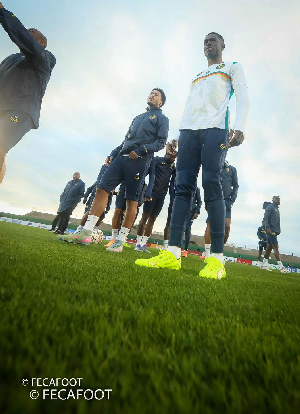The recent outburst by Governor Bakosoro of Western Equatorial State in which he labelled Dinka people as a community that is always swarmed by trouble wherever they venture is a concern to many in a nation that is still reeling in a political malaise.
The Dinkas, since the second Sudanese civil war that took off in the 1980’s, began to resettle the Greater Equatorial area after fleeing their homes in the Greater Upper Nile and Greater Bahr el Ghazal regions, and from that time onward, most of them have made the Greater Equatorial region their home.
During the war of liberation era, they specifically preferred the Greater Equatorial region because it was closer to Kenya and Uganda, where the humanitarian relief agencies had a greater accessibility to provide them foods and other basic necessities for survival.
And up to this very day, the Greater Equatorial region is still the place to be in that the East African economic giants of Uganda and Kenya haven’t moved elsewhere; they are still the preferred destinations to do business and where you send your children for a top-notch education.
South Sudan imports most of its food commodities from Uganda. So the Dinkas want to be close to where the action is.
In your own “me” time and your mind happen to be wondering about, and just in a nick of time, you start to wonder “why” out of all people of South Sudan, why does the Dinkas love to stay here and not somewhere else?
Can they be up to something we don’t know?
Perhaps we don’t really have to think too much about why the Dinkas shouldn’t be living in the Greater Equatorial region at all; in fact, what we rather ought to do is to welcome them and see where this melting pot of friction will take us to.
Chances could be that, the Dinkas were brought to the Greater Equatorial by fate. Maybe the Dinkas came to the three Equatorials so that the people of this land could understand them better and this could also be a better opportunity to start on building something completely new.
This could be the start of fusing communal alliances into new stronger coalitions, where we are many in diversity, but one in unity. Since Salva Kiir took over after the passing of Dr. John Garang, many diverse array of tribes have been calling for an end to the Dinka domination in the government, and their calling has not gone unnoticed.
Things could have been a lot worse had the Dinkas stayed in their home states rather than here in the three Equatorials. Because that way, we can all tackle our problems head on and quickly arrive at solutions for a better South Sudan, where we earnestly yearn to create a conducive environment of abundant for all to benefit.
Perhaps what we should start on working on is to start to practice the culture of tolerance. We all came from somewhere, and for whatever reason, we happened to be living at the same place at the same time.
All our cultures are vastly different and beautifully unique in their own ways. In the midst of this melting pot of friction, no one wants to give up her sovereignty of her cultural background in that we all want to be represented at any given time or place.
None of us wants to waste an iota of her time arguing about our differences, we all want to pull our lives together one way or another. Every culture in South Sudan is equally valid; let’s start on refraining ourselves from bloating out the inner stereotypical conditionings of our ethnic backgrounds.
Those inner urgings are the attitudes that offend the members of other tribal ethnic backgrounds. In Social Sciences, we are taught that cultures are human-made; and there is no nagging behemoth dispute to that, and more importantly, what we can at least slightly agree with, is that culture is one of the few societal phenomenal values that every individual in the world inherits.
It is not a private inheritance like a house you may inherit from your parents or close relatives; it is something that you get to encounter from the time you starting bi pedaling from infancy onwards.
Culture contains all the past wisdom and other ancient sacred heritage of all the generations that have since past, and it doesn’t stop from there: you and I, are a continuation of that sequential process.
Any given culture is not something you can easily spit out like a bitter food bite; it may be the only thing that the person in question has always known as part of his/her world.
The time is ripe to start looking at ourselves differently; we may have different ethnic backgrounds, but those differences do not have to create a wedge between us. We don’t really have to agree on everything; we really have to forbear each other’s differences, and at that, we have to realize that those unparalleled differences stand for something important to the culturally differing figure you are dealing with.
Opinions of Thursday, 19 February 2015
Auteur: Apioth Apioth















